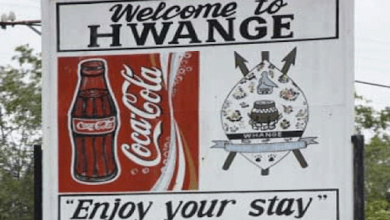‘Ban on bank lending to create market uncertainity’

The ban on bank lending by the government will create uncertainty in the market, an economist, Stevenson Dlamini has warned.
On Saturday, President Emmerson Mnangagwa announced that all financial institutions must stop lending as part of measures to bring ‘sanity’ to the sector, a development that has been criticized by many as lacking any economic merit.
“The above pronouncement by the government, suspending all forms of lending by banking institutions, building societies or any form of a financial institution that offers lines of credit simply means that they are no longer allowed to create loans,” said Dlamini.
He was speaking Wednesday during This Morning on Asakhe, an online programme hosted by CITE on Twitter Space.
“The fundamental function of banks is to create loans or credit in the economy. So, that function essentially the government has closed. It has commanded all banks to cease giving out loans. They also argue that if there were some that had already applied prior to the pronouncement they may approach the RBZ for consideration on a case by case basis.”
He further said: “So, what they’re trying to do is to curb inflation. Whether this will be successful or not, well it is still subject to further analysis but from my own observation, this will only serve to create uncertainty in the market because if the private sector believes that the government now interferes with the free market forces, there is no telling which sector will be spared from the command policies.”
He said the development was likely to trigger panic in the market.
“Although the move is arguably to calm inflation and to keep the runaway exchange rate, I believe this one was a bit drastic because once you suspend lending by banks, essentially banks make most of their profits from extending loans to the general population and the suspension is even worse because even building societies have been stopped and the construction industry, which was beginning to boom will take a hit from this policy announcement,” he said.
“So, in general, it means all banks, and all financial institutions are not going to be allowed to give out loans at whatever interest rates to individuals, companies, or the government itself because the government also borrows from the commercial banks. This will create a credit crunch in the economy, and a shortage of the RTGS in an economy that was already against the use of RTGS.”
He said: “So, in as much as they hope this move will create a demand for the RTGS, my fear is that it will create a panic in the market as the private sector feels that the call for open business is being undermined by such a move because open for business means free market forces are the ones that play in determining how the economy works. So, once you take that away from the market, it creates panic and it will create further distortions in terms of inflation and money supply.”
Meanwhile, the Zimbabwe Banks and Allied Workers Union (ZIBAWU) has also called for the immediate reversal of the government ban on bank lending, which they described as suicidal in the financial services sector.
However, RBZ governor John Mangudya told ZBC television Tuesday that the ban was a temporary measure that is meant to contain inflation and stabilise the economy.






